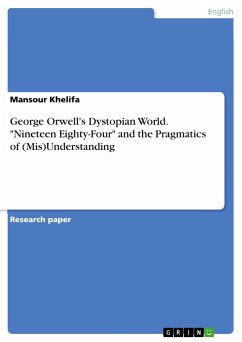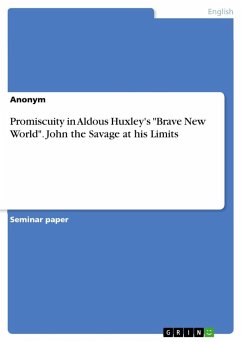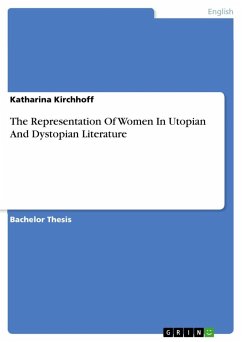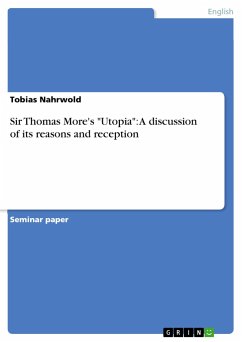
George Orwell, Nineteen Eighty-Four: Winston Smith's rebellion

PAYBACK Punkte
0 °P sammeln!
Seminar paper from the year 2001 in the subject English Language and Literature Studies - Literature, grade: gut (2), University of Dusseldorf "Heinrich Heine" (Anglistisches Institut), course: Proseminar: Utopian Literature, language: English, abstract: George Orwell's Nineteen Eighty-Four was published in 1949, a time characterized by the consequences of the Second World War and the communism of the Eastern Bloc. Winston Smith, the rebelling protagonist of Orwell's utopia, is one victim of this system. These relevant events of mankind find expression in Orwell's utopia and form the fundament...
Seminar paper from the year 2001 in the subject English Language and Literature Studies - Literature, grade: gut (2), University of Dusseldorf "Heinrich Heine" (Anglistisches Institut), course: Proseminar: Utopian Literature, language: English, abstract: George Orwell's Nineteen Eighty-Four was published in 1949, a time characterized by the consequences of the Second World War and the communism of the Eastern Bloc. Winston Smith, the rebelling protagonist of Orwell's utopia, is one victim of this system. These relevant events of mankind find expression in Orwell's utopia and form the fundament of its contents. Orwell forecasts the possibility of a black future which might be considered as a warning of the population. Still moved by the upsetting experiences of the earlier years, he tries to make the people aware of the fact how important morality is. Nevertheless it is obvious that Orwell does not give any personal comment about what is going on in the world; his attitude, however, is made visible through the protagonist's rebellion.That is why this essay aims at the description of Winston Smith's character and the development of his rebellion - its increase, climax and decrease for which it is necessary to deal with the ideology and the system of the state he lives in. At first, facts about his normal life in Oceania are provided: his outer appearance, his social status depending on his job, his past referring to his family and his former wife. Then, the focus will shift to his love affair with Julia and its effects on Winston's personality. His real nonconformity evidently starts with the first moment he gets in touch with her. Different subjects like the room in Mr Charrington's junk shop, O'Brien, a member of the Inner Party, and at last their captivity give the reader an orientation over the stages Julia and Winston are running through.













